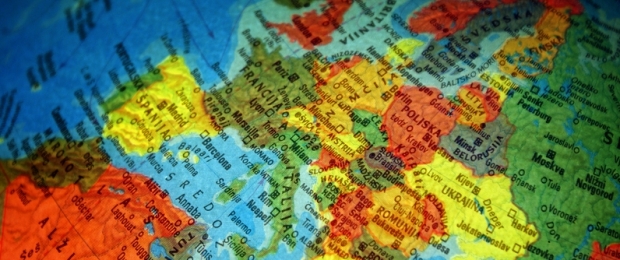
A clean break for Europe
Europe needs to change. Those who constantly have to defend the concept of Europe against ill-informed criticism can easily slip into a defensive mode. But if we are serious about reform, we need to be on the front foot. We should acknowledge the European Union's problems, propose change and, where necessary, make a fresh start. The last thing Europe needs now is timid conservatism.
Reform must begin with a cold-eyed view of the current reality. What would an objective alien whether an extra-terrestrial or a west coast American think of Europe now?
First, that the EU is the most successful, sustained voluntary association of nation-states ever seen in human history. Europe is a model of peaceful co-operation, which represents a remarkable reversal of previous centuries of division and conflict.
Second, our alien friend would note that over the last half century the EU had achieved a rate of growth in per capita living standards matched only by the United States. However, Europe's growth prospects for the coming decades are hampered by population decline. Europe's weak innovation record its poor track record of turning university research into viable businesses will also limit growth.
Third, the EU's governance structures, which were put in place in the 1950s, are outdated and liable to break under the weight of enlargement. The EU is far too inward looking, both in terms of its trade and economic policies, and the broader political debate.
Fourth, while the process of political integration appears to have slowed, the wider process of integration continues in terms of sport, culture, travel, food and communications. Private business is already much more integrated across Europe than the public sector. Those who follow the Champions League or who spend their summers at Club 18-30 are, for better or worse, European citizens.
Finally, our alien friend would see a Europe which seems weary and fatalistic. A Europe which, absorbed in process, finds change difficult, prefers to oppose rather than to lead, and lacks ideas and momentum.
Accurate or not, this is a widely held assessment of where the European project stands, and a good base from which to analyse the risks the Union faces as it enters its second half century. Europe must face up to the risks of sustained low growth and the loss of business and academic talent. Meanwhile, the UK must face up to the risk that the postponement of euro entry will lead to a significant disengagement not of withdrawal but of detachment brought about by the lack of common purpose, and a lack of belief in Europe's ability to add anything to the UK's own energy and momentum. These are serious risks that must be acknowledged by those who want Europe to succeed with the UK in a leading role.
Brave words are not enough. A clean break must start with a view of the Europe we would like to create. Monnet, Schuman and the other founders of the EU started with a bold vision of what Europe could be in the 1940s and early 1950s. Incrementalism came second. This vision has been lost and must be renewed in a different form.
The most important insight of those who established the new Europe in the 1950s was that their security was best guaranteed not by tanks or border posts, but by prosperity built on economic interdependence. Their success in building a framework for intensive co-operation in support of that belief has been an astonishing achievement. The insight is as valid as ever but its application demands renewal. We need to apply the thinking which brought Europe together to the next challenges.
The security threat to Europe does not come from within. Rather it comes from instability in neighbouring regions, particularly in Russia and in the Middle East. The Middle East provides fertile ground for terrorists. Russia meanwhile is becoming more important to Europe as a key source of energy supplies with Europe requiring progressively more imports of both oil and gas. Europe has a straightforward and direct interest in securing active and institutionalised engagement with neighbouring governments, built on the principle of mutual advantage.
The threat to prosperity is internal. Europe needs to replace its old model and open its economy to innovation, creativity and trade. The EU's efforts to protect its regressive agricultural policy in world trade talks are morally offensive and economically self-defeating. Europe has every interest in setting the pace in trade liberalisation both for its own citizens and for those in the developing world for whom the continued denial of fair access to European markets is a denial of hope.
An open trade policy is necessary but not sufficient. Europe also needs more open labour markets encouraging greater movement of people within the Union and an ordered but generous approach to immigration. And Europe must combine such changes with a new intellectual openness through the development of universities and research institutes on a par with those which have underpinned America's economic success.
Free trade, the freer movement of labour, and the encouragement of learning and innovation could renew both prosperity and political momentum. Such policies would also demonstrate to a sceptical public what the EU is really for.
Security, prosperity and governance are three crucial elements of a new beginning. The fourth is the non-governmental integration which is already occurring. We need to map what has happened and to investigate the barriers to even deeper integration some deliberate, some accidental. The removal of those barriers, rather than any imposed solution, will be the key to the development of a genuine Union a Union which is relevant to all, which has purpose, and which commands respect and support.
This then is the next challenge for Europe. Laurels provide an uncomfortable resting place. Incrementalism is not enough. It is time to be bold.
